Braces in Switzerland
Search and Compare the Best Clinics and Doctors at the Lowest Prices for Braces in Switzerland
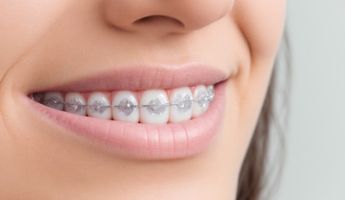
Find the best clinics for Braces in Switzerland
No pricing info available
Vietnam offers the best prices Worldwide
Price: $ 1
From 26 verified reviews
Marina Kossinskaia, 21 September 2020
I would like to share my experience with people who, like me three years ago, are searching for a Doctor they can trust and a clinic they feel is safe and trustworthy. I’m not going to write much about the amazing location and the views from the clinic, that people wrote so much about already. I would like to write about the amazing people working there. I have been a patient of Dr. Michel Pfulg at LaClinic since 2017 and I have never had less than a perfect experience with him. I have had the most fantastic results without any scarring or obvious signs of cosmetic surgery. Dr Pfulg’s warm, welcoming personality allowed me to fully trust him, knowing he will never do more than what is needed, and trusting his aesthetic eye to get the most beautiful results. So much so, last month he performed surgery on my daughter which went wonderfully and she healed very fast, without any complications or pain post-op. The result is amazing! Over these past three years being a patient at LaClinic, I’ve had the privilege of experiencing their full range of care. Their dental department worked long and hard to give me the most perfect Hollywood smile. Dr. Claudie Rigoulot is fantastic with laser treatments and also with different types of fillers, etc. Skincare professional Irène Bruesch saved my teenage daughters skin, working with Biologique Recherche products which our whole family now swears by. I would also like to mention Katia Letertre, who has helped me throughout my journey with the clinic, helping with every administrative and organizational matter, translating for me from Russian, and generally being a huge support and comfort throughout our many experiences at LaClinic. Thank you so much to all the staff working there for making me so happy and providing exceptional ongoing care for our whole family.
From 17 verified reviews
Tano Barth, 28 March 2020
The staff at the establishment are very kind, professional and attentive. We feel very comfortable in the Clinic and care is quick. I understand why the Clinique Générale Beaulieu enjoys such a good reputation.
Klinik Hirslanden, located in Witellikerstrasse, Zurich, Switzerland offers patients Braces procedures among its total of 530 available procedures, across 28 different specialties. Currently, there's no pricing information for Braces procedures at Klinik Hirslanden, as all prices are available on request only. All procedures and treatments are undertaken by the lead specialist at the Clinic, and they are not accredited by any recognized accreditations institutes
- Home
- Switzerland
Compare Before & After Photos of _procedure_photos.phpBraces
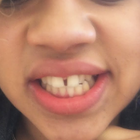
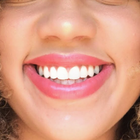
Front view
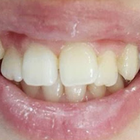
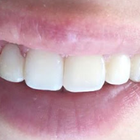
Front view
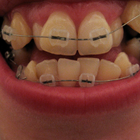
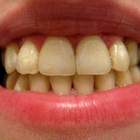
Front view
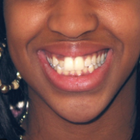
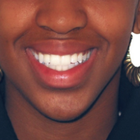
Front view
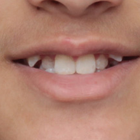
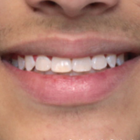
Front view
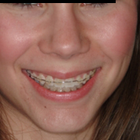
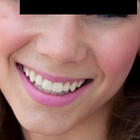
Front view
WHY US?
At Medijump, we're making medical easy. You can search, compare, discuss, and book your medical all in one place. We open the door to the best medical providers worldwide, saving you time and energy along the way, and it's all for FREE, no hidden fees, and no price markups guaranteed. So what are you waiting for?

Free

Best Price

Widest Selection

Risk-Free
What do you need to know about Braces in Switzerland?
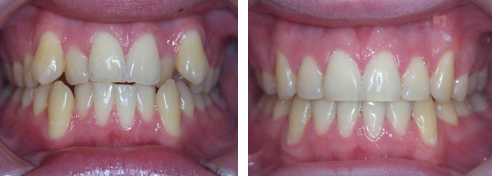
The Braces, commonly referred to as braces, is a mainstream dental technique designed to correct and align a person's dentition. Beneficial for both aesthetic and health reasons, the process involves repositioning misaligned teeth to improve your oral health and overall appearance. Aesthetic benefits aside, the Braces in Switzerland also assists in enhancing oral hygiene, reducing discomfort when chewing, and even helping in speech correction in certain scenarios.
A thorough understanding of the Braces requires patient awareness regarding the longevity and complexity of the procedure. The dentist assesses the oral condition of an individual and plans a custom treatment accordingly. The treatment is usually achieved through subsequent periodic modifications that help guide teeth to their correct position over time. Your dentist unwaveringly monitors the Braces process, ensuring progress, and addressing any potential complications promptly.
There are several types of braces, including:
- Metal braces –are the traditional braces that come to mind for most people. Metal braces are made of metal brackets and an archwire is used to put pressure on your teeth and jawline, and O-rings are used to connect the brackets and the archwire.
- Ceramic braces – these are the same shape and size of metal braces. However, they are tooth-colored or clear, so they blend in with your teeth.
- Lingual braces – this type of braces are essentially the same as traditional metal braces, except that the wires and brackets are placed on the inside of your teeth.
- Clear aligners – mostly known as Invisalign (the most popular brand of clear aligners), these are removable, clear braces. This type of braces is best for people who only need minor corrections.
Braces are usually used during adolescence. However, more and more people are getting them later on in life.
What is the cost of Braces in Switzerland?
The cost of Braces or braces in Switzerland can vary based on a range of factors. These can include the specific type of braces chosen, the severity of the case, the expected duration of the treatment, and the dentist's experience and expertise. The costs can also be influenced by the geographical location. For example, the pricing for this dental intervention could be influenced by the local cost of living and local healthcare standards.
Apart from these specifics, your insurance coverage can also impact the final cost of the treatment. It's vital to verify with your insurance provider if orthodontic treatments like the Braces are covered in your plan and to what extent. Some plans cover only a portion of the treatment, while others may cover more. Speaking with your dentist about costs and payment plans is recommended for a smooth, transparent, and stress-free treatment experience
What does a Braces Procedure Involve?
The Braces involves multiple stages which start with an initial consultation at an accredited clinic to assess the dental needs and the approaches applicable to the case. The first step typically involves a meticulous examination, including an X-ray of your dentition to gain a complete understanding of your oral structure.
Subsequent to the initial consultation, the dentist crafts a specialized plan that outlines the sequence for the Braces. Once the plan is finalized and consented by the patient, implementation begins. The chosen type of braces are put on, which is a process that can last for a few hours. Post-installation, periodic adjustments at regular intervals are crucial to guide the teeth to the desired position gradually.
How Long Should I Stay in Switzerland for a Braces?
As the Braces involves separate steps over an extended period, individual visits to your dentist or orthodontist are usually brief. Most patients can expect their initial fitting to take around one to two hours, with follow-up adjustment visits usually taking around 15 to 30 minutes.
While the procedure does not require any hospital stay and has minimal impact on your daily activities, it's crucial to note that a full Braces or braces treatment can often last between 18 to 24 months. Therefore, any decision to relocate during the treatment period should be carefully considered.
What's the Recovery Time for Braces in Switzerland?
The concept of 'recovery time' for the Braces differs from other medical procedures. After your braces have been fitted or adjusted, you may experience general discomfort or difficulty in eating solid food. Usually, this discomfort subsides in about a week.
Contrarily, the overall process of correcting dental alignment using braces isn't quick. Depending on factors such as age, dental condition, and the extent of alignment required, the entire process may last anywhere from 1 to 3 years. As progress varies from case to case, it's best to discuss this with your healthcare provider to understand the timeline for your unique situation.
What's the Success Rate of Braces in Switzerland?
The Braces enjoys a remarkable success rate. With high patient satisfaction levels reported worldwide, the process has helped many to achieve a desirable and healthier smile. The success of a Braces differs from case to case and depends on the patient's dental condition, age, and the type of braces used.
Another crucial factor that significantly influences the success of the Braces is patient compliance. Adherence to the guidelines provided by the orthodontist, including diligent oral hygiene, attending follow-up appointments, and ensuring regular adjustments are a few ways to optimize treatment outcomes and experience long-term success.
Are there Alternatives to *Treatment Procedure* in Switzerland?
Yes, there available alternatives to the Braces in Switzerland. Invisalign, for instance, is a modern orthodontic treatment that, unlike traditional metal braces, uses clear, removable aligners custom-fitted to your teeth. This alternative has grown popular due to its near-invisible appearance, making the treatment less noticeable.
Another alternative is the lingual braces; these are essentially similar to traditional braces but are placed on the inward-facing side of your teeth, making them less visible when you speak or smile. Dental surgery is a more drastic option, usually considered only in extreme cases when orthodontic treatments alone may not be sufficient.
It's important to discuss these alternatives with your dentist and consider all aspects such as costs, duration, maintenance, and visual appearance before deciding on the most suitable option for you.
What Should You Expect Before and After the Braces?
WebMD, could be a few years or indefinitely. Many patients have reported heightened self-confidence and improved oral health, making the Braces a worthy investment, which has made a mark in the field of Health and wellness.
What are some potential complications of the Braces in Switzerland?
While the Braces is generally safe, like any dental procedure, there can be potential complications such as discomfort after adjustment, difficulty in brushing, loss of calcium from the teeth (tooth decalcification), and shortening of tooth roots. Rarely, patients may also experience allergic reactions to some of the metals used in braces.
Difficulty brushing could potentially lead to an accumulation of plaque, leading to gum disease if not adequately managed. As such, engaging in regular oral hygiene practices is of utmost importance. If you notice any of these issues, it is crucial to raise them with your dentist as soon as possible
What is the Importance of Aftercare for Braces?
Aftercare plays a crucial role in the success and longevity of the results of the Braces. Once the braces are removed, you're generally required to wear a retainer, which your dentist will custom-fit for you. A retainer helps in maintaining and stabilizing your teeth in their new position. Neglecting to wear the retainer can lead to your teeth shifting back to their original position, reducing the efficiency of the treatment.
In addition to using a retainer, maintaining good oral hygiene throughout the course of wearing braces and even afterward is necessary. Oral care routines such as brushing your teeth twice a day, flossing regularly, and having routine dental checkups will help ensure the health of your teeth and gums long after the Braces.
A well-nourished diet that limits sugary and starchy foods is recommended to further protect your oral health.
What are the Differences Between Adult and Children's Braces?
When comparing adult and children's braces, the primary distinction is rooted in the biological differences between kids and adults. As children’s jaws are still growing, it may be easier to influence the position and alignment of teeth, making children more responsive to the Braces.
However, with adults, the Braces might take longer as their jaws are already fully developed, and shifting teeth can be more complex. So, while braces are effective at any age, the duration of treatment may differ between adults and children.
Even though the Braces will differ among age groups, the critical point remains that adults, just like children, can still benefit from braces in terms of improved oral health, better dental function and enhanced self confidence, as mentioned by Mayo Clinic.
What are the Different Types of Braces?

There are several types of braces or Braces options available to cater to an array of needs and preferences. Traditional braces are the most popular, consisting of metal brackets that are glued to your teeth and linked with wires. They're now lighter and more flexible, reducing discomfort than previous versions.
Ceramic braces are similar to traditional ones, but they use tooth-colored or clear brackets to merge more naturally with your teeth. Lingual braces are metal braces placed on the inside of your teeth making them less noticeable. Lastly, Invisalign braces are clear, custom-fit removable aligners that are almost invisible, making them very popular among adults and teens who prioritize aesthetics.
It's important to remember that each type of Braces has its pros and cons: while some might be more aesthetically pleasing, others could be more efficient in treating complicated cases. Consulting with your dentist will allow you to make an informed decision based on your unique case.
What Kind of Maintenance Does Braces Require?
Maintenance during the Braces involves maintaining a high level of oral hygiene. Because braces can lodge food particles, frequent and thorough brushing is necessary to prevent plaque build-up leading to tooth decay or gum disease. The use of special brushes and floss can help get to those hard-to-reach places around brackets and wires.
Additionally, periodic appointments with your orthodontist are obligatory to keep track of progression and make necessary adjustments. Furthermore, certain types of food are to be avoided as they can break wires or brackets. These typically include hard or sticky foods like candy, popcorn, and nuts. Your dentist will provide specific guidelines customized to your Braces.
Whilst the information presented here has been accurately sourced and verified by a medical professional for its accuracy, it is still advised to consult with your doctor before pursuing a medical treatment at one of the listed medical providers
No Time?
Tell us what you're looking for and we'll reachout to the top clinics all at once
Enquire Now

Popular Procedures in Switzerland
Prices Start From $1

Prices Start From $1

Prices Start From $48

Prices Start From $1

Prices Start From $1

Prices Start From $1

Prices Start From $11

Prices Start From $1

Prices Start From $45

Recommended Medical Centers in Switzerland for Braces

- Interpreter services
- Translation service
- Religious facilities
- Medical records transfer
- Medical travel insurance
- Health insurance coordination
- TV in the room
- Safe in the room
- Phone in the room
- Private rooms for patients available

- Interpreter services
- Translation service
- Religious facilities
- Medical records transfer
- Medical travel insurance
- Health insurance coordination
- TV in the room
- Safe in the room
- Phone in the room
- Private rooms for patients available

- Interpreter services
- Translation service
- Religious facilities
- Medical records transfer
- Medical travel insurance
- Health insurance coordination
- TV in the room
- Safe in the room
- Phone in the room
- Private rooms for patients available

- Interpreter services
- Translation service
- Religious facilities
- Medical records transfer
- Medical travel insurance
- Health insurance coordination
- TV in the room
- Safe in the room
- Phone in the room
- Private rooms for patients available
Braces in and around Switzerland
About Switzerland
Switzerland is a landlocked country located in Europe and is famous for its chocolate and clocks; this country offers its visitors beautiful landscapes, medieval towns, modern art, avant-garde culture, and Alpine tradition. From the Swiss Alps and the Jura Mountains to Renaissance-era allegorical statues and medieval architecture, Switzerland provides an unforgettable experience for everyone. Today, the country is popular with medical tourists who travel here for top quality elective surgery and dentistry. The healthcare system is world-renowned and beyond impressive, with highly qualified doctors and staff who work in ultra-modern hospitals and clinics. According to the WHO, Switzerland’s public health services system is one of the most effective in the world. A full range of advanced medicine and technology are available here, from heart surgery, orthopedics, neurosurgery, to oncology.
Popular Cities and Regions in Switzerland
Most medical tourists travel to Bern, the de facto capital of Switzerland. Here, tourists can walk around the historic town center that is brimming with churches, cobblestone streets, medieval clock towers, and well-preserved sandstone homes. The main attractions in this city are Zentrum Paul Klee and Kunstmuseum. Besides Bern, Zürich is a famous destination for medical tourists. Set on the beautiful Zurich Lake, this city offers many amazing medical centers and tourist attractions. It’s a culturally vibrant city that is recognized as one of the most liveable cities in the world. Tourists are welcome to visit Fraumüster, explore Schweizerisches Landesmuseum, and admire art at Kunsthaus. Along with Bern and Zürich, Geneva is also popular. It has the world’s largest fountain, a historic city center, and spectacular views of Lake Geneva.
Transport in Switzerland
Zurich Airport is the main gateway to Switzerland. It serves regular scheduled and charter flights to and from numerous cities in Europe, North America, and Asia. Public transport in the country is comprehensive. Trains are comfortable and scenic, and buses take over where the rails run out. Taxis and Uber are available to travel inside cities.
Visas in Switzerland
As a part of the Schengen Agreement, Switzerland allows citizens of 62 countries, including Australia and the US, to stay in the country without a visa for up to 90 days. Nationals of most other countries are required to have a Schengen visa to enter the country.
Weather in Switzerland
Winter (November – March) is cold and snowy, with an average temperature of 5 to 10°C in Zurich. It’s a popular time for tourists who want to ski. Spring (April – June) has warmer weather, although some areas still experience snowfall. Summer (July – August) brings perfect and warm weather, with an average temperature of 27°C. Autumn (September – October) is still warm but the days are becoming shorter.
Additional Info
- Local Currency: The currency is the Swiss Franc (CHF). 1 CHF is equivalent to 1.04 USD.
- Money & Payments: ATMs can be found easily and major credit cards (Visa and MasterCard) are widely accepted. Tipping is not necessary.
- Local Language: Switzerland has four official languages: German, French, Italian, and Romansh. Most of the population speaks excellent English, especially those in major cities.
- Local Culture and Religion: The predominant religion is Christianity, which has been present in the country since the Roman Era. The country guarantees full freedom of religion, and Islam, Hinduism, Buddhism, Judaism, as well as other religions are practiced by a small portion of the population.
- Public Holidays: Switzerland has several public holidays, including New Year’s Day, Berchtold's Day, Corpus Christi, Immaculate Conception Day, and Christmas Day.
Popular Searches
- Plastic Surgery in Thailand
- Dental Implants in Thailand
- Hair Transplant in Thailand
- Breast Augmentation Thailand
- Gastric Sleeve in Thailand
- Gender Reassignment Surgery in Thailand
- Laser Hair Removal in Bangkok
- Botox in Bangkok
- Dermatology in Bangkok
- Breast Augmentation in Bangkok
- Coolsculpting in Bangkok
- Veneers in Turkey
- Hair Transplant in Turkey
- Rhinoplasty in Turkey
- Stem Cell Therapy in Mexico
- Rhinoplasty in Mexico
- Liposuction in Mexico
- Coolsculpting in Tijuana
- Rhinoplasty in Korea
- Scar Removal in Korea
- Gastric Sleeve in Turkey
- Bone Marrow Transplant in India
- Invisalign in Malaysia
- Plastic Surgery in the Dominican Republic
- Tummy Tuck in the Dominican Republic
- Plastic and Cosmetic Surgery in Poland
- Rhinoplasty in Poland
- Hair Implant in Poland
- Dental Implants in Poland
- IVF in Turkey


